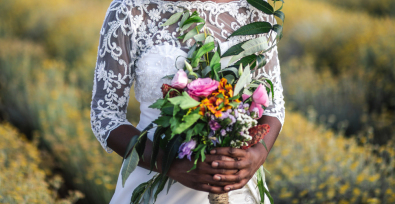In 2019, the High Court of Tanzania banned marriage for girls under 18. Sadly, forced marriages still occur across Africa, with some girls married off as young as 15. According to the international NGO Girls Not Brides: The Global Partnership to End Child Marriage, 5% of girls in Tanzania are married by 15 and 29% before turning 18. The widespread practice of forced girl marriage is what drives the Pastoral Women’s Council (PWC) to fight for the rights of Maasai women and girls, and it was this commitment that allowed them to save 17-year-old Nia.
Rescued, with no time to spare
Naishorua Masago (Nai), a young Maasai woman from the village of Kirtalo, was 13 years old when she was first exposed to the threat of forced marriage. Nai’s grandparents raised her, and she believed they were her biological parents. One day, shortly after finishing primary school, a stranger approached her, claiming to be her biological father and told her it was time for her to marry. Fortunately, this encounter qualified Nai for a high school scholarship from the Pastoral Women’s Council (PWC). With the PWC’s support, Nai left for the Ngorongoro District where she earned her high school diploma.
However, Nai’s father did not give up. He eventually returned for her and this time succeeded in taking her away. Nai recounted her experience to EL PAÍS:
“I told him that I wanted to continue studying, not get married. My mother told me that would be a disgrace,”
But Nai wasn’t ready to surrender her freedom at 17. The day before her wedding, Nai took a chance and asked a passing motorcyclist to inform the PWC about her situation. On the morning of the ceremony, the PWC took her to a shelter.
Women empowering women
Pastoral Women’s Council, founded by women, works to ensure Maasai women have economic independence and fight gender-based violence, forced marriage, the abolition of female genital mutilation. Thanks to the support of the Malala Fund, 700 girls at Nai’s school have received scholarships and 250 completed university courses. In 2016, the PWC also began creating groups of women who save and contribute to common funds used for emergencies and credit.
Naire Lio, leader of a common fund group in the Longido District said:
“Before, we stayed at home. When we needed money, we had to ask our husbands for it. Now, we all have small businesses: we have built houses and we share the profits,” … “We’ve never lived in times like this: now, we contribute, we don’t beg,”
Lio and her colleagues extended their knowledge to women in nearby villages, establishing six new community banks. The PWC has since replicated this initiative across 127 villages in three districts, benefiting over 15,000 women and strengthening community solidarity. In addition, solidarity bomas, a livestock cooperatives managed by women, was established in 1998 to promote ownership and income generation for Maasai women, who traditionally rely on livestock for their livelihood.
“Everything belongs to our husbands”
Although a 2023 survey revealed that 85% of Tanzanians believe that women should have the right to own land, only 8.1% of the women own land. In Tanzania, landownership is complicated by a dual legal system: statutory law, which grants equal rights to men and women, and customary law, which favors men. To address this, the PWC engages community leaders to advocate for women’s land rights. By convincing leaders, rather than husbands, the PWC has helped over 350 women secure land ownership.
Ngoije, a beneficiary of this movement, who now owns her own land said:
“Maasai women have never had the right to property. Everything belongs to our husbands: the house, the cattle… even our children belong to them,” … “This wouldn’t have been possible if we had tried to convince our husbands. We had to resort to the chiefs to achieve this,”
Freedom United supports the important work that Pastoral Women’s Council is doing to safeguard women and girls. Case by case, country by country, we will continue to push lawmakers and politicians to protect our children from this abhorrent practice. Join the fight against forced marriage today.







Freedom United is interested in hearing from our community and welcomes relevant, informed comments, advice, and insights that advance the conversation around our campaigns and advocacy. We value inclusivity and respect within our community. To be approved, your comments should be civil.